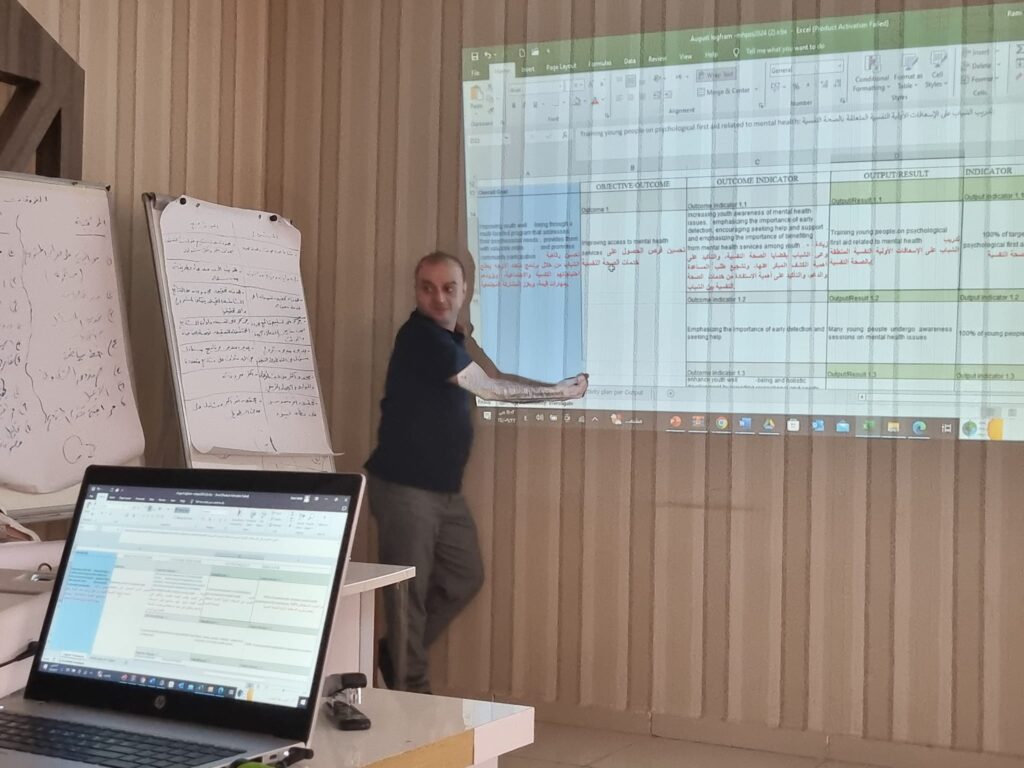The #Human_Rights_Guardians Organization, in partnership with the #Asfari Foundation, and as part of the series of workshops scheduled to build the capacity of the organization’s executive team, held a two-day workshop on #Monitoring and Evaluation at the organization’s headquarters in Mardin, Turkey. The trainer, Dr. Rami Al-Khatib, initially explained the training objectives and the concept of monitoring, which is the process of collecting and analyzing data regularly and continuously during the project implementation period with the aim of following up on the daily progress of the project and ensuring that activities are implemented according to the schedule and identifying problems early. In short, monitoring means what we do and evaluation, what have we achieved? The trainer explained the basic differences between monitoring and evaluation and divided the participants into three working groups. He also addressed the main messages about monitoring and evaluation and why monitoring and evaluation. He explained what a project is and the difference between it and a program and the importance of monitoring and evaluation for accountability and for learning and the purpose of the basic humanitarian standards. The trainer explained the logical framework table and the logical framework rows of goals, objectives, activities, outputs, results and impact. He spoke about the logical framework columns of the indicator and means of verification and explained in detail the SMART goals of specific, measurable, verifiable, relevant and time-bound. He addressed the types of indicators in terms of quantity and quality and finally explained the methods. Data collection from interviews, visits, focus groups, questionnaires, direct observation, best practices in data collection, and finally the trainer explained the ethics of monitoring and evaluation and lessons learned. Finally, the trainer explained how to formulate a monitoring and evaluation report.










